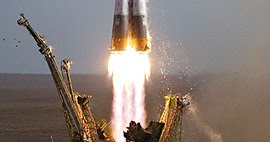Those are excellent questions to start with, jpishgar!
1) We haven't seen a
crewed mission to Mars yet largely because of two things: the physical cost on the human body, and funding. Scientists really aren't sure what the long-term effects of flying in deep-space might be on the human body because a Mars trip would send astronauts on a 6-month trip beyond Earth's magnetic field, where they'd be hit by cosmic radiation and other hazards that NASA isn't confident enough yet that it knows what to deal with.
The bigger challenge is the cashy money. It's expensive to mount a mission to Mars, and one of the reasons we haven't returned to the moon since the Apollo era was the sheer cost of it all. Today, the U.S. doesn't have a Cold War adversary to compete against, so the political will hasn't always been there to throw money behind moonshots.
That may be changing now with the
Moon by 2024 push under the Trump Administration, and the fact that China has landed on the far side of the moon, while India, Russia, Israel and others planning their own missions.
NASA has always said that a crewed mission to Mars is the goal. But in nearly 20 years of space reporting for me, it's always been 20 years away.
2) The weirdest space tech I've ever seen has to be NASA's Robonaut with legs. Robonaut is a humanoid robot helper for astronauts on the International Space Station and in 2014,
NASA have it prehensile legs that were just creepy.
Russia's humanoid Skybot is a definite runner-up.
I once saw an X Prize rocket concept in the early 2000s that was like a train, with each booster segment connected by cables, with the top one pulling the ones below and then dropping away. That was pretty weird, but I can't find it and am starting to wonder if I dreamed it!
3) The militarization of space is an intriguing question. The United States officially has a Space Force, and while that may be alarming for some, I think that the militarization of space is something that's been around since the Space Age began.
The first rockets were developed as military efforts that were later adapted to carry satellites and people into space. So in a sense, a militarized space has been with us from the beginning, and it gave things like GPS satellites, communications satellites and Earth-observation networks.
What I, personally, am concerned about is
the weaponization of space - placing actual weapons in space to attack other satellites or countries. There is a treaty preventing that, but satellite jamming and anti-satellite weapons are out there now, with
India testing an anti-satellite missile last year. That kind of thing
could affect the technology we all depend on every day.
4. I think planetariums are wonderful places and have fond memories of the one at Delta College in Stockton, California where I grew up. But there's no substitute for looking at the night sky from a dark site in nature.
I live in New Jersey now, which is pretty built up, so it's hard to find a truly dark patch of sky. But as a Boy Scout in California, we'd go on camp outs every month and seeing the Milky Way for the first time is one of my favorite memories.






